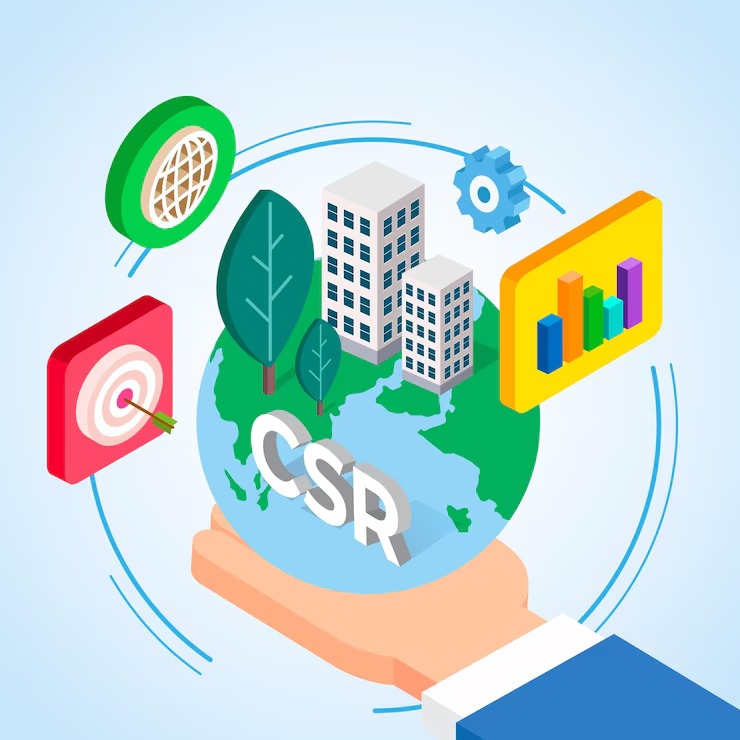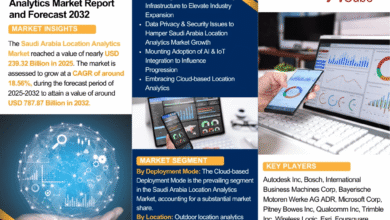Best ESG Reporting Software: A Complete Guide to Choosing the Right Sustainability Reporting Tool in 2025

Introduction to ESG Reporting Software and Its Rising Importance
In today’s era of responsible investing and sustainable business practices, Environmental, Social, and Governance (ESG) metrics have emerged as crucial indicators for companies worldwide. ESG reporting is no longer optional; it has become a strategic necessity. Organizations across industries are under pressure from regulators, investors, consumers, and stakeholders to disclose their sustainability performance transparently. The increasing demand for accurate ESG disclosures has given rise to a variety of ESG reporting software solutions that simplify data collection, analytics, and compliance. As ESG frameworks become more complex and globally standardized, choosing the best ESG reporting software can make a significant difference in efficiency, credibility, and impact. This comprehensive guide explores the features, benefits, and top players in ESG software for 2025, helping businesses select the right tool for sustainable success.
Why ESG Reporting Matters in 2025
The relevance of ESG reporting has escalated with stricter global regulations, increased investor scrutiny, and growing environmental concerns. Governments and regulatory bodies such as the SEC, EU Taxonomy, CSRD, and ISSB are pushing for standardized disclosures, making robust ESG data management essential. Investors now integrate ESG scores into financial decisions, while customers prefer eco-conscious brands. Companies that adopt strong ESG practices benefit from enhanced brand reputation, better risk mitigation, increased stakeholder trust, and long-term profitability. Therefore, businesses are investing in the best ESG reporting software to automate their sustainability journey, ensure regulatory compliance, and maintain a competitive edge in a sustainability-driven market.
Key Features to Look for in the Best ESG Reporting Software
When evaluating ESG reporting software, organizations must prioritize tools that are comprehensive, customizable, and compliant with global standards. Below are the critical features to consider:
1. Framework and Standard Compatibility
The best ESG reporting software supports multiple frameworks such as GRI (Global Reporting Initiative), SASB (Sustainability Accounting Standards Board), TCFD (Task Force on Climate-related Financial Disclosures), CDP, SDGs (Sustainable Development Goals), and more. Multi-framework support enables flexibility and ensures the company can align with evolving regulations.
2. Automated Data Collection and Integration
A top-tier ESG platform allows seamless integration with ERP systems, spreadsheets, IoT sensors, and other enterprise tools for real-time data collection. Automated data ingestion reduces manual errors and saves time.
3. Customizable Dashboards and Analytics
Advanced ESG software provides customizable dashboards, KPIs, and metrics. Visualization tools, trend analysis, and forecasting help in strategic decision-making and performance tracking.
4. Materiality Assessment Tools
Materiality assessments are crucial for identifying the most impactful ESG issues. The best software includes stakeholder surveys, heat maps, and AI-based risk identification to refine ESG priorities.
5. Regulatory Compliance and Audit Trail
Compliance with current and emerging ESG regulations is a must. A reliable ESG platform ensures traceable data, audit logs, and document management to meet disclosure mandates and third-party audits.
6. Reporting and Disclosure Tools
ESG reporting software should provide templated and customizable reports for stakeholders, regulators, and internal teams. Automated report generation aligned with ESG standards enhances reporting accuracy.
7. Supplier and Scope 3 Emissions Tracking
Leading platforms track Scope 1, 2, and 3 emissions, including supply chain sustainability. Supplier engagement tools help gather ESG data from vendors and subcontractors.
8. AI and Predictive Analytics
AI-powered features like anomaly detection, ESG scoring, predictive modeling, and risk evaluation elevate the software’s strategic value for long-term planning.
9. User-Friendly Interface and Scalability
A clean interface, mobile accessibility, role-based permissions, and multilingual support ensure ease of use across global teams. The software must scale with business growth and expanding ESG goals.
10. Third-Party Verification and Assurance Integration
To maintain credibility, the best ESG platforms allow integration with third-party verification agencies, enabling certified and assured disclosures.
Top 10 Best ESG Reporting Software in 2025
1. Enablon by Wolters Kluwer
Enablon is one of the most advanced ESG reporting platforms globally. It provides a comprehensive suite for sustainability management, compliance, and risk analysis. It supports GRI, SASB, TCFD, and other frameworks with strong audit features and enterprise scalability.
2. Diligent ESG
Diligent offers a modern ESG solution designed for boards and executives. It includes real-time ESG data tracking, customizable dashboards, and pre-built reporting templates aligned with CSRD, SEC, and EU taxonomy. The platform excels in governance and board-level insights.
3. Workiva ESG
Workiva is a cloud-native platform that streamlines ESG reporting, financial compliance, and audit trails. It integrates seamlessly with multiple data sources and supports multiple frameworks with collaborative document editing, workflow management, and powerful analytics.
4. SpheraCloud ESG
SpheraCloud provides comprehensive ESG, EHS, and operational risk management tools. It offers Scope 1, 2, and 3 emissions tracking, automated compliance features, and integration with SAP and Oracle. It’s ideal for heavy industries and manufacturers.
5. Persefoni
Persefoni specializes in carbon accounting and climate disclosure. Its AI-powered platform enables accurate GHG emissions tracking, climate risk modeling, and alignment with TCFD and SEC guidelines. Persefoni is a favorite among financial institutions and ESG consultants.
6. EcoVadis
EcoVadis focuses on sustainability and ethical performance in the supply chain. It evaluates suppliers based on a global ESG scorecard and provides tools for due diligence, risk mitigation, and compliance. Ideal for companies with large vendor networks.
7. FigBytes
FigBytes is an integrated sustainability management platform that connects ESG goals with operational data. It offers real-time dashboards, stakeholder engagement modules, and automated disclosures aligned with frameworks like GRI and SDGs. Its transparency-first design is favored by mid-sized enterprises.
8. OneTrust ESG & Sustainability Cloud
OneTrust’s ESG suite offers modular solutions for ESG metrics, climate accounting, and DEI reporting. It supports double materiality, stakeholder surveys, and automated disclosures while integrating with OneTrust’s privacy and risk tools.
9. Novisto
Novisto provides an all-in-one ESG data governance and reporting platform tailored for corporate ESG teams. It automates data collection, validation, and multi-standard reporting while offering AI-based analytics and stakeholder insights.
10. Cority Sustainability Cloud
Cority delivers an enterprise-grade sustainability solution with deep integrations into EHS and compliance modules. It includes robust ESG metric tracking, AI tools, and audit features for heavily regulated industries.
Benefits of Using the Best ESG Reporting Software
Improved Data Accuracy and Transparency
With automated workflows and integrated data sources, ESG software minimizes human errors and enhances data quality, boosting investor and stakeholder confidence.
Faster and Reliable ESG Disclosures
Automated reporting tools reduce manual workloads, accelerate reporting cycles, and support timely and standardized disclosures across multiple frameworks.
Risk Management and Regulatory Readiness
ESG platforms identify risks, predict potential ESG liabilities, and ensure compliance with regulations, helping companies avoid penalties and legal issues.
Boosts Corporate Reputation and Investor Relations
Transparent ESG practices and credible disclosures enhance brand image, attract investors, and improve ESG ratings on indices like MSCI, DJSI, and Sustainalytics.
Stakeholder Engagement and Accountability
ESG tools enable interactive dashboards and collaborative features that align internal teams, suppliers, and stakeholders on sustainability goals.
Supports Long-Term Strategy and Impact
Advanced analytics, AI forecasting, and scenario planning tools help embed ESG into corporate strategy and measure real-world impact.
Challenges to Consider While Selecting ESG Reporting Software
Data Silos and Integration Complexities
Integrating ESG platforms with existing systems like ERP, HRMS, and CRM can be challenging. Select software with strong APIs and integration support.
High Cost and Implementation Time
Some enterprise-grade ESG platforms can be costly and require time-consuming customization. Evaluate your needs carefully to avoid over-investment.
Changing Regulations and Frameworks
Keeping up with evolving ESG standards is difficult. Ensure the software offers regular updates, regulatory alerts, and framework expansions.
Limited Supplier Data and Scope 3 Tracking
Gathering reliable supply chain data for Scope 3 emissions remains a major hurdle. Look for platforms that facilitate vendor outreach and validation.
Future Trends in ESG Reporting Software
1. AI and Machine Learning Adoption
AI will enhance risk forecasting, anomaly detection, and ESG scoring, helping businesses stay ahead of sustainability challenges.
2. Blockchain for ESG Transparency
Blockchain technology will be used to verify ESG data provenance, especially in supply chains and carbon markets.
3. Integration with IoT and Smart Devices
IoT devices will automate real-time ESG data collection, especially for emissions, energy, and resource tracking in manufacturing and logistics.
4. Sustainability as a Service (SaaS)
More companies will shift to SaaS-based ESG tools for affordability, scalability, and ease of updates.
5. Focus on DEI and Social Metrics
Inclusion, gender equity, and human rights disclosures will gain prominence in ESG software features, reflecting stakeholder expectations.
Conclusion: Choosing the Best ESG Reporting Software for Your Business
The selection of the best ESG reporting software depends on your business size, industry, ESG maturity, and regulatory needs. While some organizations may require all-in-one platforms like Enablon or Workiva, others may benefit more from focused solutions like Persefoni or EcoVadis. Regardless of the choice, the right ESG software can transform sustainability from a compliance activity to a strategic driver of value. With automated data management, accurate reporting, and actionable insights, ESG software empowers organizations to meet regulatory demands, satisfy investor expectations, and build a sustainable future. As we move deeper into the ESG era, investing in the right software is not just a tech decision—it’s a long-term commitment to responsible growth.




